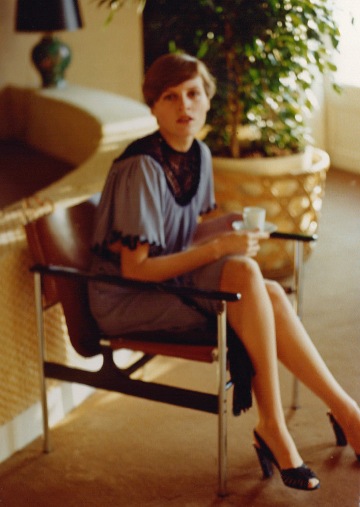 SOMETIMES, WHEN I AM FACED WITH an exceptionally difficult challenge, or when I am just plain feeling sorry for myself, I stop to take stock of my surroundings. I live in a particularly beautiful place and pausing to recognize this fact always fills me with an immense sense of gratitude. Where I wake up, the morning air is filled with the scent of pine; where I fall asleep, the night sky, with millions of visible stars. Rabbits live under my house and feed each day on grass that grows wild in my front yard. Deer munch regularly along side them. And, every once in a while, a neighborhood bear trespasses to see if I have left a garbage can unsecured for him. It is difficult not to believe in God when you live in a place like this. La richesse takes on a different meaning altogether. You cannot not feel blessed, not feel rich, when everywhere you look, when all of your worldly possessions—as modest as they may be—are crowned by a backdrop of majestic natural beauty.
SOMETIMES, WHEN I AM FACED WITH an exceptionally difficult challenge, or when I am just plain feeling sorry for myself, I stop to take stock of my surroundings. I live in a particularly beautiful place and pausing to recognize this fact always fills me with an immense sense of gratitude. Where I wake up, the morning air is filled with the scent of pine; where I fall asleep, the night sky, with millions of visible stars. Rabbits live under my house and feed each day on grass that grows wild in my front yard. Deer munch regularly along side them. And, every once in a while, a neighborhood bear trespasses to see if I have left a garbage can unsecured for him. It is difficult not to believe in God when you live in a place like this. La richesse takes on a different meaning altogether. You cannot not feel blessed, not feel rich, when everywhere you look, when all of your worldly possessions—as modest as they may be—are crowned by a backdrop of majestic natural beauty.

 In these moments, I think back to a time when wealth was measured only by dollar signs, when luxury came in boxes tied with silk ribbons from Dior and logos took the place of the stars; when my life bustled with activity and my Filofax runneth over.
In these moments, I think back to a time when wealth was measured only by dollar signs, when luxury came in boxes tied with silk ribbons from Dior and logos took the place of the stars; when my life bustled with activity and my Filofax runneth over.  Back then, it didn’t matter that the city lights obscured the night sky. There was always l’Oeil de Vogue to serve as my compass. Forever pointing north of one’s aspirations, it photographically tracked the lives of the characters from the Sizzling Seventies who occupied the spotlight just to tantalize me, it seemed, with a singular thought: What is it like to be that famous? To be that rich?
Back then, it didn’t matter that the city lights obscured the night sky. There was always l’Oeil de Vogue to serve as my compass. Forever pointing north of one’s aspirations, it photographically tracked the lives of the characters from the Sizzling Seventies who occupied the spotlight just to tantalize me, it seemed, with a singular thought: What is it like to be that famous? To be that rich?
 The tantalizer of tantalizers, of course, was the iconic figure of Jackie—the one woman of the era who needed no surname, whose every move was scrutinized by a world insatiably incapable of getting enough of her. Each time her picture would appear in the pages of Vogue, Town and Country, and Harper’s Bazaar, I would think back to my childhood days and the fascination she had held for my mother. It had been shattered back in the fall of 1968 when it was announced that Mrs. Kennedy had married Greek shipping tycoon, Aristotle Onassis. Referred to as “the deal of the century”–the acquisition of the ultimate trophy wife whose ultimate fear was of poverty–my mother wasn’t the only one for whom Jackie’s glossy veneer cracked that day. On the morning of October 21st, 1968, I remember sitting in the
The tantalizer of tantalizers, of course, was the iconic figure of Jackie—the one woman of the era who needed no surname, whose every move was scrutinized by a world insatiably incapable of getting enough of her. Each time her picture would appear in the pages of Vogue, Town and Country, and Harper’s Bazaar, I would think back to my childhood days and the fascination she had held for my mother. It had been shattered back in the fall of 1968 when it was announced that Mrs. Kennedy had married Greek shipping tycoon, Aristotle Onassis. Referred to as “the deal of the century”–the acquisition of the ultimate trophy wife whose ultimate fear was of poverty–my mother wasn’t the only one for whom Jackie’s glossy veneer cracked that day. On the morning of October 21st, 1968, I remember sitting in the 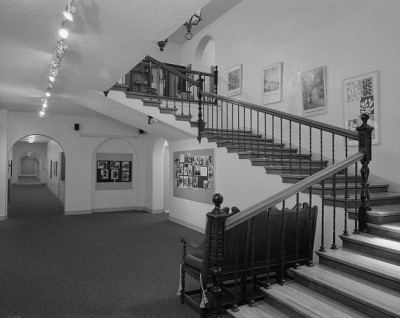 Senior Lounge at Westlake when the pictures of Jackie’s quiet and simple wedding crashed suddenly upon every television network across the world. The turn of the century living area at the top of the great staircase, where we would gather between classes to study and gossip, had been a bit sleepy that morning–at least until the news had broken. Like my mother, most of my high school classmates were appalled by the thought that America’s Queen could have remarried–particularly to a man like Onassis who many referred to as “the toad.” In the weeks that followed, “Jackie, how could you?” became the rallying cry of most Americans.
Senior Lounge at Westlake when the pictures of Jackie’s quiet and simple wedding crashed suddenly upon every television network across the world. The turn of the century living area at the top of the great staircase, where we would gather between classes to study and gossip, had been a bit sleepy that morning–at least until the news had broken. Like my mother, most of my high school classmates were appalled by the thought that America’s Queen could have remarried–particularly to a man like Onassis who many referred to as “the toad.” In the weeks that followed, “Jackie, how could you?” became the rallying cry of most Americans.
Sandy King was the girl in our class who always looked oblivious to her surroundings; but, in reality, nothing ever got by her. The no-nonsense “don’t give me that bullshit” one of the group, she was always ready to call you on your crap.
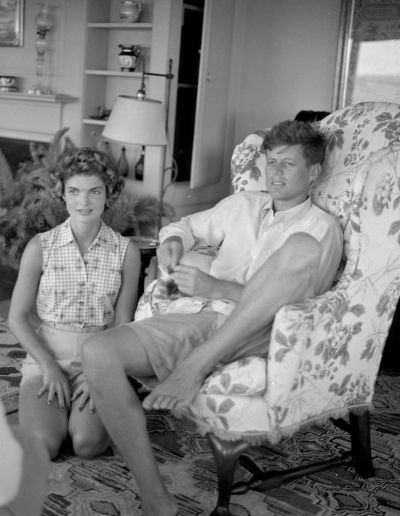 “Why shouldn’t she be given the chance to be happy?” Sandy exclaimed that morning, the solo voice bewildered by the reaction of her friends busy with homework while tracking the television reports with a side eye. “Just because she’s the martyred widow of an assassinated President doesn’t mean we own her.”
“Why shouldn’t she be given the chance to be happy?” Sandy exclaimed that morning, the solo voice bewildered by the reaction of her friends busy with homework while tracking the television reports with a side eye. “Just because she’s the martyred widow of an assassinated President doesn’t mean we own her.”
Like Sandy, I wasn’t repulsed. I was fascinated.
I had never heard of Onassis; I had no idea who he was. But I remember thinking that any man who could snare Jackie Kennedy had to be one very intriguing character.
If someone had told me back then, that in a few short years, I would be spending an afternoon with the two of them, walking through woods in the French countryside that served as Jean Caracciolo’s back yard, sipping wine and lunching on soufflé and rôti d’agneau while speaking of world events, I would have taken them for crazy. And yet, that’s exactly what happened.
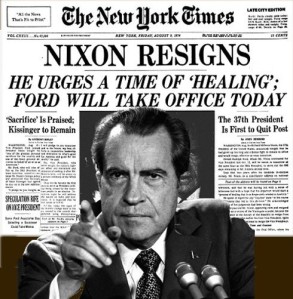 It was the weekend of August 17th, 1974, in the days following Nixon’s resignation as President. Pitou and I were a few months away from moving into a new apartment on the Champ de Mars, overlooking the Eiffel Tower. It hadn’t been touched since the early twenties and we were in the throes of a complete renovation with the help of renowned interior decorator, and Pitou’s close friend, Alain Demachy. I had recently taken my exams at the American Embassy to become a registered representative of the New York Stock Exchange and, hearing of my entré into the elite
It was the weekend of August 17th, 1974, in the days following Nixon’s resignation as President. Pitou and I were a few months away from moving into a new apartment on the Champ de Mars, overlooking the Eiffel Tower. It hadn’t been touched since the early twenties and we were in the throes of a complete renovation with the help of renowned interior decorator, and Pitou’s close friend, Alain Demachy. I had recently taken my exams at the American Embassy to become a registered representative of the New York Stock Exchange and, hearing of my entré into the elite  male club, was invited to Jean’s country manoir for the weekend to celebrate. My feelings about this rite of passage were mixed. The markets were in a tailspin, a few short months away from plunging to lows not seen in twenty years and, unless I could demonstrate an ability to persuade the very wealthy to transfer their accounts to the “Thundering Herd,” still “bullish on America” despite all evidence to the contrary, I knew I wouldn’t be celebrating for long.
male club, was invited to Jean’s country manoir for the weekend to celebrate. My feelings about this rite of passage were mixed. The markets were in a tailspin, a few short months away from plunging to lows not seen in twenty years and, unless I could demonstrate an ability to persuade the very wealthy to transfer their accounts to the “Thundering Herd,” still “bullish on America” despite all evidence to the contrary, I knew I wouldn’t be celebrating for long.
At twenty-two years of age, with a budding career as a stock broker, you cannot be told that you will be spending the weekend with one of the richest men in the world without holding the glimmer of hope that, somehow, by the end of it, he will become your client. Looking back upon that moment so long ago, I can only laugh at the thought. This was, after all, the man who has been quoted as saying: “The secret of business is to know something that nobody else knows.” For Onassis, insider information wasn’t a law to be feared by anyone working in the financial arena; it was a condition precedent for success. And those naïve enough to think otherwise were just that: naïve. In any event, although taken in an entirely different context, they were words not lost on Jackie. In 1974, the European rumor mill was replete with gossip of her inevitable separation from the Greek tycoon. At the time she agreed to marry Onassis, no financial conditions were imposed. The same could not be said when it came to Ari’s wish for a divorce. He had tried to get her to sign a document agreeing to a three million dollar settlement in the event of a split. As smart as this man could be, he was also capable of immense stupidity. If Jackie simply waited it out, under Greek law, upon his death, she would be entitled to one eighth of his entire billion dollar fortune. When that moment finally came, she proved to Ari’s daughter, Christina, how well she had listened to the wise words of her husband.  Offering Jackie the paltry three million her father had intended for his wife, the “Black Widow” retorted with a nasty bite. She knew things, things nobody was supposed to know—“things nobody else knows.”
Offering Jackie the paltry three million her father had intended for his wife, the “Black Widow” retorted with a nasty bite. She knew things, things nobody was supposed to know—“things nobody else knows.”
When the settlement with Jackie was signed by Christina in May of 1975, it was for twenty-six million. It gave new meaning to another oft quote by Onassis:
“I have no friends, and no enemies—only competitors.”
On the day I met Ari, he would have contended that he was sixty-eight years old. He was the shell of the man who had fled Smyrna, where he was born in either 1900 or 1906 depending on who you believe. Onassis kept two passports. Whatever his age, he had only 7 months left to live. Yet, in every important respect, he had been dead for over a year. He died on the day his son, Alexander, crashed his plane off the coast of the Ionian Sea on take-off. His grief, compounded by a Greek sense of being punished by the fates, was inconsolable and had undermined, both, his belief in himself and his will to live. I had heard that he had become neurotically morbid and, looking at him, it was not hard to believe. Night after night, he would take a bottle of ouzo and two glasses up to Alexander’s grave on the island of Skorpios and, pouring one for himself and one for his son, would sit and cry while talking to him.
Jean had told me of Ari’s humble beginnings, of his unbridled determination and how he had amassed a fortune from nothing. His father, Socrates, a successful tobacco merchant, had high ambitions for his only son. But, as a boy, Ari hated school and his grades were the lowest in his class. Yet the youth was charming, cunning, and would grow up to demonstrate that you don’t need to be exceedingly intelligent to be smart.
 In 1922, he settled in Greece in the wake of the Greco-Turkish War. From there, he moved to Argentina where he established himself as a tobacco trader, making his first million by capitalizing on the sale of Turkish blend cigarettes to the, heretofore, unexploited market of female smokers.
In 1922, he settled in Greece in the wake of the Greco-Turkish War. From there, he moved to Argentina where he established himself as a tobacco trader, making his first million by capitalizing on the sale of Turkish blend cigarettes to the, heretofore, unexploited market of female smokers.
“To get his first job in Argentina,” Jean explained, while running the length of his Davidhoff cigar with the flame from a Cedars of Lebanon wooden match, “he stood outside the office of the president of the national telephone company where he wished to work…every day for three weeks. He never said anything, never uttered a word to the man as he entered and left his office each day—always noticing Ari, but never acknowledging him.”
“But, why?” I asked. “What was the point?”
“The point,” Jean responded, “was that Ari understood human nature. He knew that, eventually, just by standing there, he would peak the president’s curiosity. And, at that point, he would no longer be le demandeur. The president would come to Ari—instead of Ari coming to the president. When the man could take it no longer, he said to Onassis ‘I see you here every day. But, what is it that you want?’”
Jean grinned like the Cheshire cat before continuing with the story, enthralled by Aristotle’s ingenuity.
“ ‘I want a job,’ he told the man. And, not surprisingly, he was hired on the spot. Then… he used his position to eavesdrop on the conversations taking place between Buenos Aires, London and New York, of the rich and powerful, and profited from the information he acquired to place his first bets. ”
Blowing the smoke from his cigar in to the air, he stared at its length as he continued to talk. The fact that great wealth was amassed by his friend through the use of trickery and deception was not a cause for disdain. To the contrary, all of Europe, including my Italian prince of a friend, admired Ari for it. Taking another puff from his cigar, he commented:
 “He invested every cent he made into his wardrobe. When he burst upon the Argentinian social scene, with some of the most beautiful women in Buenos Aires on his arm, nobody knew who he was nor where he came from.”
“He invested every cent he made into his wardrobe. When he burst upon the Argentinian social scene, with some of the most beautiful women in Buenos Aires on his arm, nobody knew who he was nor where he came from.”
But it didn’t matter; perfecting seduction into an art form in order to serve his ambitions, Ari succeeded in reinventing himself while giving new meaning to the expression “fake it until you make it.”
He bought his first cargo ships (six of them at half their scrap value) at the height of the Depression when he realized that the shipping magnates he used to haul his tobacco were making more money than he was as the manufacturer of the cigarettes. The intricate web of companies, stacked upon each other so as to hide the identity of their owner from the FBI, CIA and IRS, began to form with the Second World War when Onassis, who by then had fled to New York, leased his fleet to the Allied Forces and began forming associations with other buccaneers who profited immensely from the War. Single minded in his pursuit of money, he had no time for debate or argument about his goals. Ruthless, he would do anything, and use anybody, to achieve them. When his father was imprisoned in Turkey, during the Greek holocaust, it was said that Ari seduced a Turkish officer in order to free him—not because he was homosexual by nature, but because it was the most effective way of getting what he wanted. Nicholas Gage, author of “Greek Fire,” once said of him: “he felt that everybody had a price, and could be bought; but, like most cynics, he wanted to be proven wrong.” He never was. If anything, Jackie proved that much to him.
I liked the fact that I had been taken into this small circle of the renowned and had been made privy to their secrets. I think Jean enjoyed seeing my young eyes widen as he weaved his stories and captivated my undivided attention.
“Ari knew what he wanted,” Jean concluded, “and he went out and got it.”
 Forty years later, Onassis would be known as the man who always got what he wanted. Notorious for his obsession for beautiful and celebrated women—his need to be noticed and envied—he readily admitted that the presence of the famous at his table established his standing in his own eyes. Was it any surprise to anyone who knew him that when he decided that he had to have Jackie, he got her?
Forty years later, Onassis would be known as the man who always got what he wanted. Notorious for his obsession for beautiful and celebrated women—his need to be noticed and envied—he readily admitted that the presence of the famous at his table established his standing in his own eyes. Was it any surprise to anyone who knew him that when he decided that he had to have Jackie, he got her?
 Nevertheless, there were so many “be careful what you wish for” stories in those days, so many rumors of his ultimate regrets: of his marriage to Jackie as the greatest mistake of his life. Onassis loved spirited women, the ones with fire in their bellies who weren’t afraid of giving him a piece of their minds. But he was also a Greek. And, at the end of the day, he fully expected them to swoon in capitulation, ready to concede defeat to a man obsessed with showing the world who was boss, a man whose towering ego completely overshadowed his dwarfed physique. It is said that the only woman whom he ever truly loved, operatic diva Maria Callas, understood this little game, and knew how to play it to perfection. Jackie, however, did not; and, by the time I met Ari, he had been feeling the fool for it–for years.
Nevertheless, there were so many “be careful what you wish for” stories in those days, so many rumors of his ultimate regrets: of his marriage to Jackie as the greatest mistake of his life. Onassis loved spirited women, the ones with fire in their bellies who weren’t afraid of giving him a piece of their minds. But he was also a Greek. And, at the end of the day, he fully expected them to swoon in capitulation, ready to concede defeat to a man obsessed with showing the world who was boss, a man whose towering ego completely overshadowed his dwarfed physique. It is said that the only woman whom he ever truly loved, operatic diva Maria Callas, understood this little game, and knew how to play it to perfection. Jackie, however, did not; and, by the time I met Ari, he had been feeling the fool for it–for years.
And yet, as different as the two women were, they admired each other immensely. In July of 1963, Jackie beseeched Maria to perform at the White House and, had it not been for recording contracts La Callas was obligated to respect, she would have, that October. Seven years later, Maria would attempt suicide because of the woman.
While Maria had had enough of life, in 1972, Ari decided that he had had enough of Jackie although, by then, it came as no surprise to her that she had fallen from favor. In fact, she had been given five years notice of her marriage’s ultimate demise. Believing Jackie would open doors for Onassis in Washington, within a week of their wedding, and the confirmation from his bride that she would never serve that purpose, he was back in the arms of Maria. But it took one of Jackie’s shopping sprees to send the shipping tycoon overboard. That year, Jackie spent some $60,000 on shoes alone–a sum that easily represents $500,000 in today’s economic lexicon. But, worse, she had a willful haughtiness, a “refusal to obey the patriarch” mentality that, while amusing Ari, also irritated him to no end. When he refused to have a member of the crew on the Christina O accompany her to the mainland for an afternoon of off-the-yacht divertissements, she simply dove overboard and swam to shore. Jackie may have married Onassis for his money, but she was hell-bent on letting him, and the world, know that she had not been bought. She had made an exchange. And, in her mind, it was an even one.
 He didn’t worship at her feet, nor did he ever fall for a woman who didn’t serve a purpose, usually a commercial one. He used them as stepping-stones, and Jackie was no exception. It was no coincidence that his first wife, Tina Livanos, was the daughter of the world’s richest shipping magnate: Stavros Livanos. Nor did it come as a surprise that the marriage ended in divorce, once Onassis had managed to snare the attention of Maria—a woman he likened to “a Picasso, or a Rembrandt,” in other words, a possession he had acquired to be put on display. Never satisfied, greedy, deceptive and incapable of discretion, he was also an expert at undermining the confidence of his women when it suited his needs. To strike back at La Callas, for her fiery nature—her insolence in the face of her lover’s need to control, he attempted to destroy her confidence and, with it, her career by telling her that her voice sounded like a whistle. The cruelty that this man was capable of knew no bounds, as Jackie would find out in March of 1973. If ever there was a man to whom pay back and retribution for one’s transgressions was deserved, it was Ari.
He didn’t worship at her feet, nor did he ever fall for a woman who didn’t serve a purpose, usually a commercial one. He used them as stepping-stones, and Jackie was no exception. It was no coincidence that his first wife, Tina Livanos, was the daughter of the world’s richest shipping magnate: Stavros Livanos. Nor did it come as a surprise that the marriage ended in divorce, once Onassis had managed to snare the attention of Maria—a woman he likened to “a Picasso, or a Rembrandt,” in other words, a possession he had acquired to be put on display. Never satisfied, greedy, deceptive and incapable of discretion, he was also an expert at undermining the confidence of his women when it suited his needs. To strike back at La Callas, for her fiery nature—her insolence in the face of her lover’s need to control, he attempted to destroy her confidence and, with it, her career by telling her that her voice sounded like a whistle. The cruelty that this man was capable of knew no bounds, as Jackie would find out in March of 1973. If ever there was a man to whom pay back and retribution for one’s transgressions was deserved, it was Ari.
Onassis knew only two ways to tame his women for the sin of their lack of comprehension, their refusal to succumb to his will: through the use of violence, or through ridicule. He was not above beating them—he even bragged about it. But he knew he could never get away with that with Jackie. And so, it was said, he hatched a plan.
She was hounded by the press, trailed everywhere she went by a train of paparazzi, and accustomed to filing lawsuits, left and right, at the publishing firms who refused to respect her privacy—all with Ari’s money, of course. To accommodate his wife’s needs, Skorpios, the shipping tycoon’s private island in the Ionian sea, was surrounded by a flotilla of patrol boats; and its 250 hectares and 10 kilometers of roads were monitored day and night by armed guards. It had been part of the deal, in exchange for which Onassis had expected Jackie’s complete allegiance. In fact, the privacy of the island was guarded so tightly, it had been removed from the official maps of the Ionian Sea.
 Then, how is it that, in November of 1972, ten photographers were able to slip into the waters off Skorpios in wet suits and, with detailed maps of not only the island, but the dates, times, and places where Jackie was expected to be, snapped photos of her sunbathing in the nude?
Then, how is it that, in November of 1972, ten photographers were able to slip into the waters off Skorpios in wet suits and, with detailed maps of not only the island, but the dates, times, and places where Jackie was expected to be, snapped photos of her sunbathing in the nude?
Tired of Jackie’s constant complaints about the press, and no longer willing to finance her costly invasion-of-privacy lawsuits, Onassis set out to embarrass his wife, and in the process, topple her from her pedestal–completely shattering her pride.
 He hadn’t given a second thought to the effect his little caper would have on Jackie’s children. Back in school in the states, the pubescent offspring of the late American President were teased incessantly—particularly young John who, enrolled at Collegiate in New York City, was repeatedly heckled about his mother’s “billion dollar bush.” The young boys who attended the oldest prep school in the United States weren’t nicknamed “Survivors” for nothing. You have to wonder if the girls at Concord Academy were any kinder to Caroline.
He hadn’t given a second thought to the effect his little caper would have on Jackie’s children. Back in school in the states, the pubescent offspring of the late American President were teased incessantly—particularly young John who, enrolled at Collegiate in New York City, was repeatedly heckled about his mother’s “billion dollar bush.” The young boys who attended the oldest prep school in the United States weren’t nicknamed “Survivors” for nothing. You have to wonder if the girls at Concord Academy were any kinder to Caroline.
Yet, when the photos, shrouded in mystery, were published in March of 1973, there were no photographic credits: no name, no story, no caption.
“C’est comme même bizarre,” Gérard Bonnet noted, as he scrutinized the color shots from his desk at Merrill. “Comment veux tu que quel q’un a peux avoir accès aussi proche?”[1]
But, with a wink, he couldn’t resist turning to me and adding: “Elle n’est pas mal, n’est-ce-pas? Pas de cellulite!”[2]
That was Gérard : a voyeu with a glint in his eye and an unabashed readiness to laugh at the fallen mighty.
The house was quiet when Pitou and I arrived at Drouilly that Saturday morning. Jean was aware of Ari’s declining health and had decided to keep the weekend as simple as possible. We were the only other invited guests. Caracciolo had a sincere affection for the man, one grounded in decades of friendship, even if Onassis never quite comprehended the meaning of that word. He knew that Ari was miserable, that he had, long ago, experienced serious misgivings about his marriage to Jackie; that he had sacrificed his one chance for true happiness with Maria in exchange for the envy and admiration of the world. It made me realize that virtually everything we do, we do in order to receive love. We may call it by other names—fame, success, adulation, respect—but in essence, all we really are seeking is to be loved. How ironic that, in his quest for love, Aristotle Onassis sacrificed it without a second thought.
“Jackie is spending the weekend with Pierre Salinger,” Jean noted. “She’s leaving for Kenya next week…alone.”
She arrived with Salinger’s wife, Nicole, in of all things a Ford station wagon. Nicole had left her husband at home, just a few miles away, to work on his latest book. The sound of Jackie’s voice had a riveting effect. It sent me back years into the past when, as a child, I had listened to the woman on television as she gave her tour of the newly refurbished White House. Her smile was warm, genuine and utterly relaxed. While removing her sunglasses, she giggled as she reminisced about a moment back in the fifties when she had met Pitou once before, with Jack. As Nicole bubbled with happiness at seeing Jean again, Jackie took my hand and introduced herself.
“Hello, Bérénice,” she said.
Just then, I noticed a boy standing behind her. She took him by the shoulders and pulled him in front of her.
“This is John,” she added.
Shy eyes under a crop of bushy auburn hair peered upwards at me. He had both hands in his pockets and stood, awkwardly, wondering what to do next.
“Hi!” he chirped suddenly while smiling a toothy grin.
Jean hadn’t mentioned that John Jr. would be coming. At thirteen, he didn’t yet count.
 The butler brought Kirs and placed them on the garden table at the back of the house. Under the hot summer sun, the experience of giddiness quickly overwhelmed the senses. We lounged on striped canvas beach chairs and sipped our drinks while laughing at Pitou’s jokes. With her feet on the edge of the chair and her knees slightly bent, Jackie took a sip of her wine just as he was delivering his punch line. Suddenly, she erupted into a sonorous laugh that bellowed from the pit of her stomach. Her wine glass tipped and a drop of the rose colored fluid fell onto her slacks. The pink bell bottoms were the same color as the suit she had worn that day in Dallas some ten years earlier. As she took her finger to blot out the stain, I was hit with a flashback. I could see her, scurrying on to the trunk of the convertible limousine, before being pushed by a secret service agent back into the car. The sound of the laughter rushed all around her, like the noise from the inside of a wind tunnel. But the images had jolted me – stopping me from joining in.
The butler brought Kirs and placed them on the garden table at the back of the house. Under the hot summer sun, the experience of giddiness quickly overwhelmed the senses. We lounged on striped canvas beach chairs and sipped our drinks while laughing at Pitou’s jokes. With her feet on the edge of the chair and her knees slightly bent, Jackie took a sip of her wine just as he was delivering his punch line. Suddenly, she erupted into a sonorous laugh that bellowed from the pit of her stomach. Her wine glass tipped and a drop of the rose colored fluid fell onto her slacks. The pink bell bottoms were the same color as the suit she had worn that day in Dallas some ten years earlier. As she took her finger to blot out the stain, I was hit with a flashback. I could see her, scurrying on to the trunk of the convertible limousine, before being pushed by a secret service agent back into the car. The sound of the laughter rushed all around her, like the noise from the inside of a wind tunnel. But the images had jolted me – stopping me from joining in.
“Why, Bérénice … whatever is the matter?” Jean asked. “You look like you just met a ghost. Or, is it that you already know all of Pitou’s jokes?”
“It wouldn’t matter if she did,” Jackie giggled. “Just looking at his face is enough to make you laugh!”
She would mock and tease Pitou all afternoon, and when she’d run out of quips to chide him with, she mocked herself. The self-deprecating ease of the woman caught me by surprise. It was as if she knew how short it all was, this ephemeral second in time we call life, and she was committed to spending the rest of it laughing – at you, at the world, at herself. Pitou understood her. He had hitched onto her wavelength and rode it like the light.
The tone would change once the wind settled down and the rush of the helicopter blades had come to a halt. It had landed a hundred yards off, in front of the woods. Jean waddled quickly like a duck toward the craft to greet his old friend as he descended from the plastic bubble. The mouth of Aristotle Onassis was smiling. But his eyes were sad. He gave Jean a bear hug as he fussed over him and spoke to him in Greek. Wearing gray baggy pants and a plain white shirt with sleeves rolled up to the elbows, I was surprised to discover that he was a good foot shorter than me. One had the feeling he was in uniform, as if he didn’t have the time to spare in the morning to think about what to wear. The only jewelry he sported was a large gold watch, and you had the impression that he never took it off.
“No, no,” I could hear him say as I came within a few feet of the two of them. “It wouldn’t matter if ten years had passed.”
Time seemed irrelevant for these two. Their connection was born of something intangible that allowed them to pick up where they had last left off as if they had seen each other only yesterday.
“Walk with me,” he said to Jean. “I don’t walk anymore.”
Jean clutched my elbow as he inserted himself between the past and the future.
“Come with us, Bérénice,” he said.
 Arm in arm, we strolled though the alleys of the woods behind Caracciolo’s country home while listening to Ari’s thoughts about Watergate and Richard Nixon.
Arm in arm, we strolled though the alleys of the woods behind Caracciolo’s country home while listening to Ari’s thoughts about Watergate and Richard Nixon.
“If he had just told the truth at the very beginning,” Onassis commented. “He could have diffused a time bomb. But he didn’t have faith that he could be forgiven for an error in judgment. All he had to say was ‘I’m human… I made a mistake.’ After all, the break-in by the plumbers was not an impeachable offense.”
He said it as if he had spent much time in the recent past, confronting the mistakes of his own life. He said it as if he knew death was near.
“But then, why do you think he resigned?” I asked. “Why did he give up? He said last week, in his televised speech, that his entire family urged him not to resign… and God knows, Nixon is no quitter. There had to be another reason.”
Ari took a long look at me. His tired eyes suddenly seemed infused with a spark of life. He, too, suspected that the world was not being told the truth about Watergate.
“It’s the money trail,” he said. “It was the source of the cash to pay the plumbers that was the real problem. You have to follow the money. The money trail always leads to the truth.”
 As I stood staring at one of the richest men in the world, I thought to myself, who would dare contradict him? He was certain that the 18 1/2 minute Nixon-Haldeman conversation of June 20, 1972, that had been erased from the voice activated recording system in the Oval Office, had something to do with the trail.
As I stood staring at one of the richest men in the world, I thought to myself, who would dare contradict him? He was certain that the 18 1/2 minute Nixon-Haldeman conversation of June 20, 1972, that had been erased from the voice activated recording system in the Oval Office, had something to do with the trail.
Jean could sense Ari’s fatigue. It was important to get him back to the house before he wore himself out. Skillfully, he steered Onassis back toward his other guests while insisting that it simply was not fair to deprive them of his company. Ari laughed. He had spent his life filling his houses and boats with exciting people so as not to bore his friends with his own sense of solitude.
 As we walked back toward the house to rejoin the party, I wondered whether I would get another chance to pick at this man’s wise old brain. But lunch had been served. And, with it, Jackie would do most of the talking, crack most of the jokes, and get most of the laughs, even if they weren’t all sincere.
As we walked back toward the house to rejoin the party, I wondered whether I would get another chance to pick at this man’s wise old brain. But lunch had been served. And, with it, Jackie would do most of the talking, crack most of the jokes, and get most of the laughs, even if they weren’t all sincere.
“Madame est servie,” the butler announced.
I stood still for a moment as Jean guided his old friend by the arm toward the dining room. The doors opened out onto the lawn. Passing over the threshold, Jean sat Ari down at the middle of the table in front of the hearth. The walls perpendicular to it opened on to the front and the back of the house, bringing the garden into the dining room. I wasn’t sure if Jean had placed Jackie at the head of the table or if she had just naturally gravitated there. It was no wonder she had managed to fascinate the world.
Yet, it wasn’t through her beauty. It was her aisance, her nonchalant chic and facile grace that captivated.
In any event, I found myself at the opposite extreme, facing Onassis with John Jr. to my side. We were conspicuously young and somewhat left out of the conversation. Common friends and memories bound one end of the table, leaving me to forge a new link at the other.
 “Is your sister with you in France?” I asked John.
“Is your sister with you in France?” I asked John.
He had been staring at his plate, only catching glimpses of me from time to time, from the corner of his eyes. Nodding “no” before speaking, he answered:
“She’s on a dude ranch for the summer…in Wyoming.”
Knowing now what was to become of him, it is hard to believe he could be so shy. Yet, it took him a good ten minutes of listening to me babble before he got the courage to say anything. When he finally realized that I was not about to compete with his mother for the attention of Jean’s guests, that he had become the center of my attention, not Jackie, he began to open up. I had the distinct sensation that nobody had paid much attention to him up until then. He was still a child, to be seen and not heard—so inconsequential that, of the photos later given to me from that day, John appears in none of them.
I no longer remember what led to it but, somehow, he spoke of his father.
“We have something in common,” I told him. “I was two also, when my dad died.”
The comment startled John. But after that, he began to smile as he talked and rather than looking only at his food, he turned in my direction as he spoke.
 By the time we finally retired to the living room for coffee, it was approaching four in the afternoon. I made the mistake of sitting down in front of a little book with an elephant on the cover.
By the time we finally retired to the living room for coffee, it was approaching four in the afternoon. I made the mistake of sitting down in front of a little book with an elephant on the cover.
“Oh, you are courageous, Bérénice. Pick it up.”
Jean pointed to the book while handing me a gold pen.
“What have I gotten myself into?” I asked, looking at Pitou.
 He had played the game many times before, although Jean only brought the book out on special occasions.
He had played the game many times before, although Jean only brought the book out on special occasions.  Suddenly appearing to the rear of me with a large blue silk scarf, I was quickly blindfolded.
Suddenly appearing to the rear of me with a large blue silk scarf, I was quickly blindfolded.
“Open the book and imagine an elephant,” Caracciolo said.
“Now, draw it,” he laughed, while tightening the knot.
“Blindfolded?”
“Yes, yes,” Jean answered. “Blindfolded. That’s the whole point.”
As I bravely attempted to draw my elephant, the entire room hovered over me and broke into laughter.
“It looks like a hot air balloon,” John snickered.
“You try,” I replied pulling the scarf from my eyes.
“Sign your name first, Bérénice. There will be no disowning this piece of art,” Jean commanded.
I quickly signed my name at the bottom of the page and passed the book to John. But as I tied the scarf around his head for him, he began to draw before I had secured the knot.
“That’s not fair, you’re cheating!”
“I’m no dummy,” he answered.
“It looks like a horse with its head in a bucket,” I remarked.
“Ari, it’s your turn.”
Jean waived the scarf in a signal to approach. Onassis had been standing by the fireplace trying to look inconspicuous.
“No, no, no… I can’t,” he said.
“Oh, come on Ari. You can do it,” Jackie entreated, getting up from her seat and pulling him down onto the sofa.
“No, no, no. I can’t!” he insisted.
As Jean secured the blindfold, this man, so seemingly powerful to a world denied an intimate glimpse of his life, sat sweating—beseeching his wife to let him off the hook. But she was clearly in command.
“You can do this, Ari. It’s easy.”
With the book on his knees as she handed him the gold ballpoint, Onassis slowly began to draw. Something reminiscent of a trunk appeared on the page as the shipping tycoon hesitated, wondering which direction to take next with the pen. The room was silent. He went south and managed to eke out a leg, then stopped a second time.
“I can’t! I can’t do it!” he cried.
Then, everybody chanted in unison.
“Yes you can!”
But Ari had already ripped the scarf from his eyes. Shaking his head he repeated:
“No, no! Jackie, you do it. You do it, please …”
How was it possible? The envy of the world, he had built an empire on a shoestring. Here sat a man who had risked his entire fortune twice over in a gamble to triple his net worth. But he couldn’t take the risk of drawing an elephant – an elephant that might make him look ridiculous.
Jean whispered to me while the room full of guests tried to encourage Onassis to continue.
“Amazing what my little game can reveal, isn’t it, Bérénice?”
He winked before turning his attention to Jackie. He had handed the scarf to Pitou who was fastening it for her.
Taking the pen in hand, Jackie sat perfectly erect and in one blissfully effortless stroke, without the ballpoint ever leaving the page, drew a rotund and perfect elephant. Then, removing the scarf from her eyes she proclaimed: “Voila!” and, with a flourish, signed her name to the page. Confident and thoroughly amused, she admired her work before handing the book back to Jean.
The pages were replete with the scribbling of the rich and famous, each one exposing a side of their artists’ characters – facets of each individual that, normally, went undisclosed – revealed in an unrehearsed moment where they had been taken by surprise. I suddenly understood the warm affection that Jean felt for Onassis. He had seen something in the man few had ever been privy to. Ari was vulnerable.
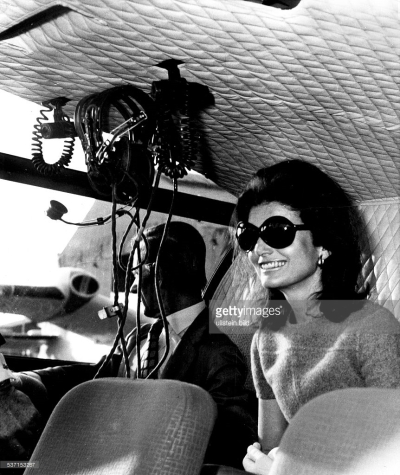 Jean told me later that, when he walked Onassis to his helicopter that afternoon, he had the distinct impression that it was the last time he would ever see him. Jackie seemed to sense it and, giving the old man the time to affectionately cajole with her husband while bidding him adieu, she turned her attention once again to Pitou. As the two of them talked, John said goodbye to me and then jumped into the bubble.
Jean told me later that, when he walked Onassis to his helicopter that afternoon, he had the distinct impression that it was the last time he would ever see him. Jackie seemed to sense it and, giving the old man the time to affectionately cajole with her husband while bidding him adieu, she turned her attention once again to Pitou. As the two of them talked, John said goodbye to me and then jumped into the bubble.
“Can I fly it?” he joked to the pilot. “Let me fly it.”
Even then, his mother didn’t think the remark funny.
Twenty-five years later, on the evening of John’s death, these are the words I would remember—the words I can still hear.
Onassis died at the American Hospital in Paris on March 15th, 1975, of Myasthenia gravis—an autoimmune disorder that occurs when the body’s defense mechanism, against infectious organisms and other invaders, attacks acetylcholine receptors in muscle. The signal from the nerves to the muscles is blocked and, as a result, the muscle cannot move. While the root cause of the disease is unknown, the thymus is thought to play an important role. Antibodies are produced there, and it is these antibodies that target the acetylcholine receptors.
 Interestingly, the thymus, located in the chest near the area where emotions are subjectively felt, is an organ that was known to the ancient Greeks, and its name comes from the Greek word θυμός (thumos). Associated with megalothymia, or the need to be recognized as superior to others, it means anger of the heart, soul, and desire for life. Representing the warrior spirit in man, his passion for power, it seethes, rages and boils, acting either separately from him, or in cooperation with him–a visceral force that can either build man up or tear him down. There is no question in my mind that Aristotle Onassis died with an angry heart and no further desire for life.
Interestingly, the thymus, located in the chest near the area where emotions are subjectively felt, is an organ that was known to the ancient Greeks, and its name comes from the Greek word θυμός (thumos). Associated with megalothymia, or the need to be recognized as superior to others, it means anger of the heart, soul, and desire for life. Representing the warrior spirit in man, his passion for power, it seethes, rages and boils, acting either separately from him, or in cooperation with him–a visceral force that can either build man up or tear him down. There is no question in my mind that Aristotle Onassis died with an angry heart and no further desire for life.
There is a Biblical saying that, from everyone who has been given much, much will be demanded. Onassis died while seemingly telling us that, where he was concerned, God had demanded too much. It has been said that his life is the story of a Greek tragedy and that, to have been given his son back, he would have given up everything. Perhaps. But, had God granted him the chance to do it all over again–this time, differently– would he have?
I wonder.
[1] “How is it possible that someone was able to get so close to her?”
[2] “Not bad, huh? No cellulite!”
Next Post: Paris–The Cinderella Years: “How We Doin?”
To be taken to the post, click on the photo of the dust jacket, below.

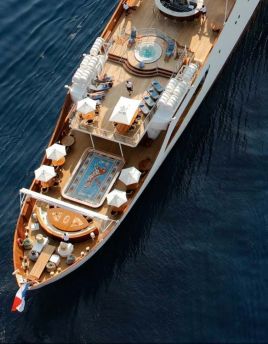
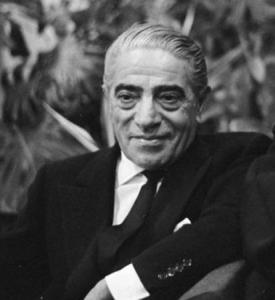




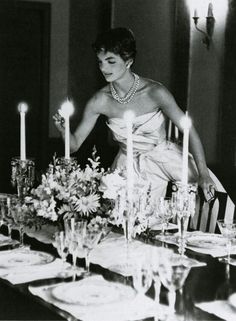


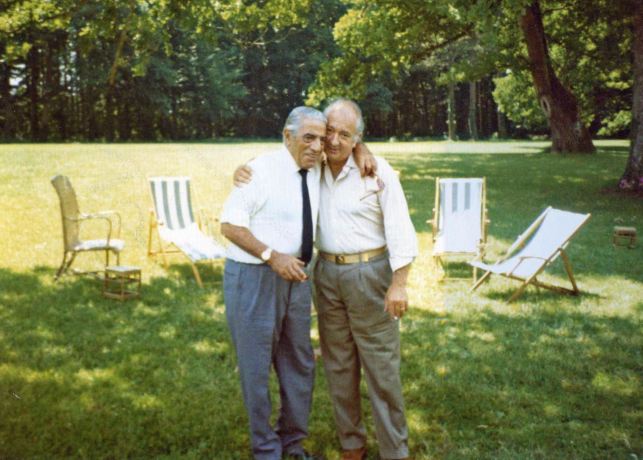


The excerpts just get better and better….please keep them coming, Berenice! What interesting experiences in life you have had…..
LikeLiked by 1 person
I am transported immediately, and as I read in disbelief, I also know that it really was and remains a part of your life. ,kAll these famous people, and all these fabulous adventures, and yet you have remained as adorable and humble as the girl I knew at 16! Keep writing, my friend…I am in love with each unfolding story!
LikeLiked by 2 people
This experience is written with an assured hand….so descriptive (not unlike Isak Dinesen). I felt not like a keen observer but as if I were there at Drouilly, too! You have a gift! Berenice, Please keep on sharing and inviting us along for the ride!
LikeLiked by 1 person
Hi! Chère Bérénice,
Nous te lisons toujours avec autant de plaisir, Tu nous procures des moments précieux, Merci !!
Toute notre Affection et nos baisers pour toi Gérard & Marica
>
LikeLiked by 1 person
Merci Marica! Bisous a toi et Gerard! Vous me manquez tant!
LikeLike
Great read.
LikeLiked by 1 person